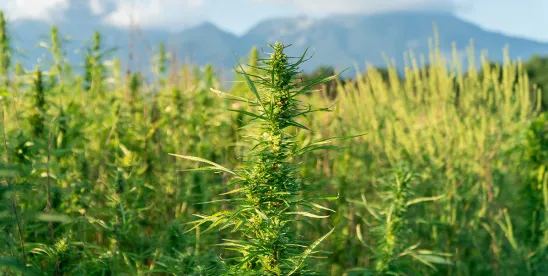The novel cannabinoid industry took another hit recently as a bipartisan group of 21 attorneys general urged Congress to make clear that states may regulate, and even prohibit, intoxicating products derived from hemp.
In a letter addressed to the leaders of the Senate and House Agriculture Committees and dated March 20, 2024, the attorneys generals warned of a “crisis issue impacting our states, our public safety, and our role as law enforcement officials.” Specifically:
we strongly urge your committees to address the glaring vagueness created in the 2018 Farm Bill that has led to the proliferation of intoxicating hemp products across the nation and challenges to the ability for states and localities to respond to the resulting health and safety crisis.
…
The definition of hemp should be amended to clarify that there is no federal hemp intoxicants loophole, and the 2023 reauthorization should reaffirm that members of Congress do not intend to limit states in restrictions or regulations related to cannabinoids or any other derivatives of hemp which are deemed intoxicating.
The reaction from hemp industry associations has been mixed. It is reported that “the Cannabis Regulators Association, or CANNRA, a coalition of state cannabis regulators, has similarly urged Congress to amend the definition of hemp under federal statute so that it refers to the crop grown for industrial or agricultural purposes and not to intoxicating products with ingredients derived from hemp.”
The general counsel of the hemp trade organization U.S. Hemp Roundtable said in a statement, “While we share the [AGs’] concerns about the proliferation of unregulated hemp products that sometimes are marketed to children, their proposed solution — as vague as it is — could wreak havoc on the hemp industry and U.S. hemp farmers.” Thus:
A redefinition of “hemp” could open the floodgates for a new prohibition on currently legal products, including those that are non-intoxicating. Instead, as we have been urging Congress for years, the optimal approach [is] to insist that FDA finally regulate all hemp products, ensuring the safety of all of them, and keeping adult products out of the hands of children.
Reporting from Law360 nicely sums up the various paths taken to date by states facing the question of intoxicating hemp products:
States have taken a number of different approaches to hemp-derived intoxicating products. Some states with legal recreational marijuana have either attempted to ban delta-8 altogether, such as Oregon and Colorado, or to integrate it into their regulatory scheme for adult-use cannabis, such as Michigan and Maryland.
States where marijuana is still illegal have also taken divergent paths on delta-8. Arkansas sought to ban delta-8 products, but a federal district court ordered the state to halt enforcement of the ban; the matter is currently before the Eighth Circuit.
Conversely, in Kentucky and Tennessee, neither of which has legal recreational marijuana, delta-8 products can be legally sold to adults 21 and over.
For the last few months, we’ve written about how hemp is under siege at the state (and possibly federal) level. A letter from a near majority of the states’ highest law enforcement officers should put fear into hemp operators. But I believe the battle is just getting started, for once the genie is out of the bottle the prior status quo is a virtual impossibility. Now that we know the possibilities of hemp and the myriad ways it can be explored and used (for better and for worse), I believe it is unlikely that either state or federal governments will be able to entirely end the industry.
But it doesn’t mean they won’t try.




 />i
/>i

